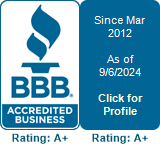The IRS uses Letter 3027C to answer an inquiry you had or relay some general information to you about the status of your account. A response may not be required. If your inquiry has not been answered satisfactorily or the information given to you by the IRS seems incorrect, you must follow up.
Typically, the IRS will indicate some action that they have taken on your account. You'll have to judge if this action is insignificant or worthy of review. If it involves the timing or amount of payments you have made, it might be worth the effort to get your Account Transcripts and compare them with your payments to uncover any discrepancies.
You could write to them at the same address as on the letter or try to call them on the phone. You might also consider getting the Taxpayer Advocate involved, if the situation is serious enough to warrant and you've exhausted all other avenues of relief.
You'll have to review the concerns you have with the answers or issues provided by IRS Letter 3027C to see if they match. If something doesn't seem right, don't let the matter drop because you might have an issue several years down the line. You might regret that you didn't act sooner.
If all else fails, contact our office. We'll get to the bottom of it or provide the correct answers to your questions.







